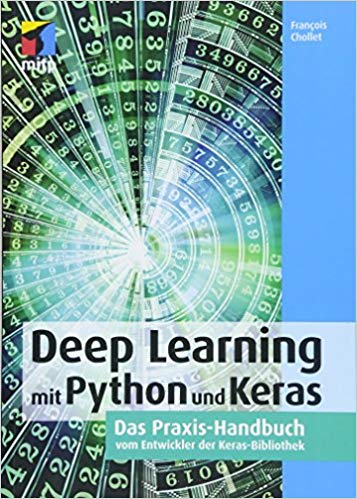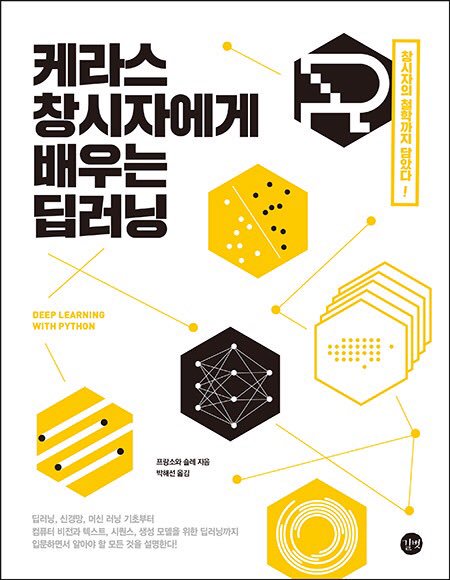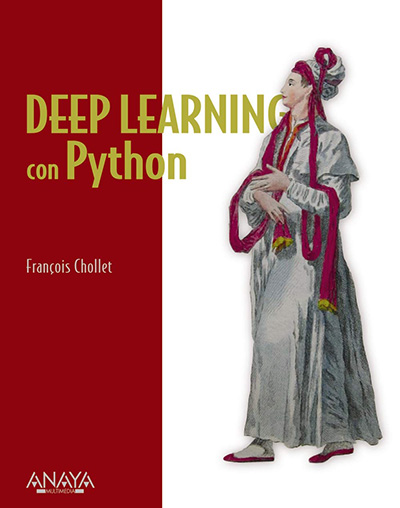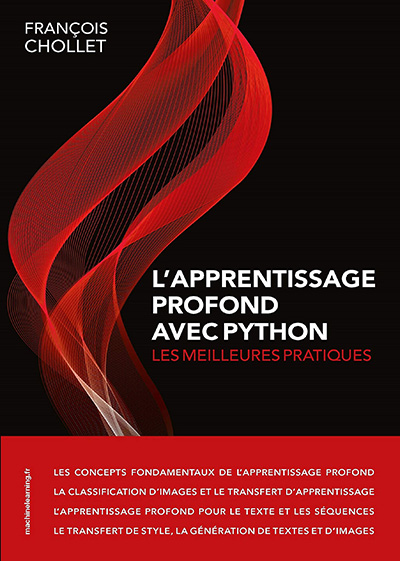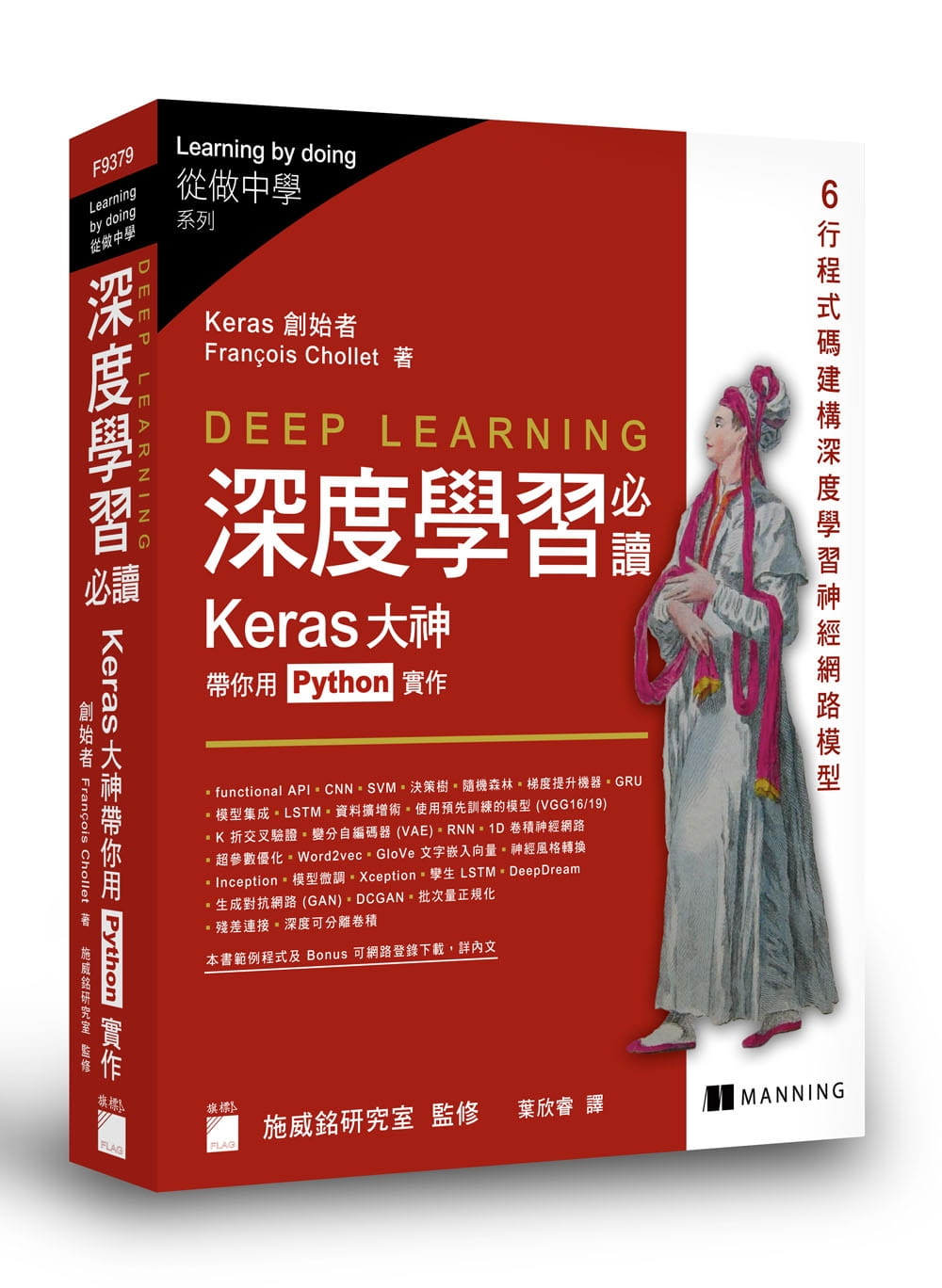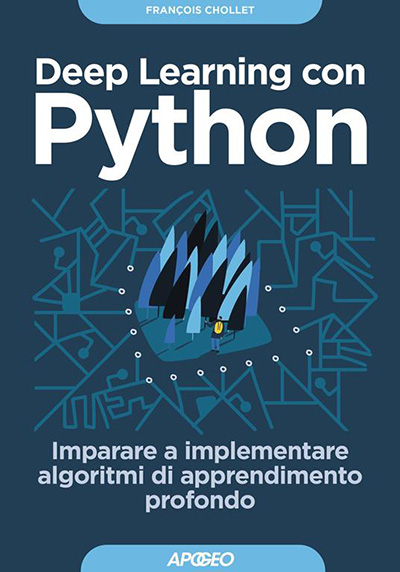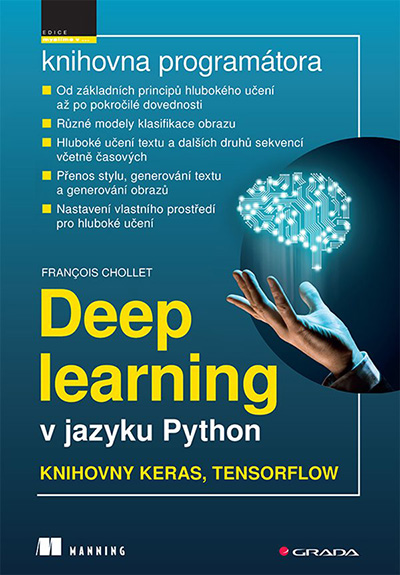François Chollet
Software engineer and AI researcher. Co-founder Ndea, ARC Prize.
Primary interests:
- Understanding the nature of abstraction and developing algorithms capable of autonomous abstraction (i.e. general intelligence)
- Democratizing the development and deployment of AI technology, by making it easier to use and explaining it clearly
- Leveraging technology, in particular AI, to help people gain greater agency over their circumstances and reach their full potential (e.g. EdTech, steerable recommendation engines, personal productivity tech, etc.)
- Understanding and simulating the early stages of human cognitive development (e.g. developmental psychology, cognitive developmental robotics)
Books
Deep Learning With Python, Second Edition

F. Chollet
2021
In this revised and expanded new edition, Keras creator François Chollet offers insights for both novice and experienced machine learning practitioners. As you move through this book, you’ll build your understanding through intuitive explanations, crisp color illustrations, and clear examples. You’ll quickly pick up the skills you need to start developing deep-learning applications.
Publisher linkDeep Learning With Python, First Edition
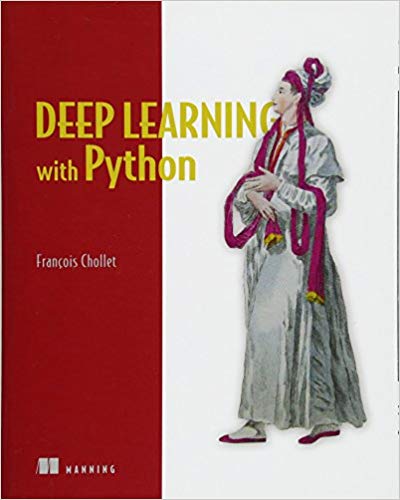
F. Chollet
2017
Deep Learning with Python introduces the field of deep learning using the Python language and the powerful Keras library. This book builds your understanding through intuitive explanations and practical examples. You'll explore challenging concepts and practice with applications in computer vision, natural-language processing, and generative models. By the time you finish, you'll have the knowledge and hands-on skills to apply deep learning in your own projects.
Publisher linkTranslations
Deep Learning With R
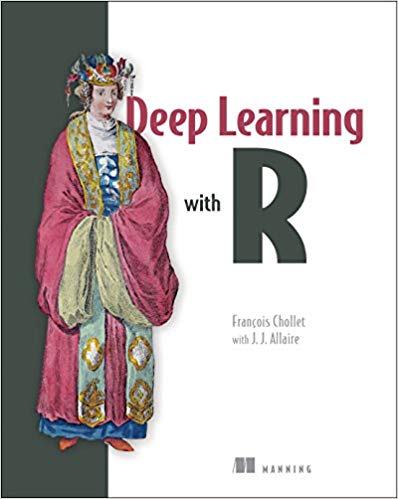
F. Chollet, J. J. Allaire
2018
Deep Learning With R is the R language version of Deep Learning With Python.
Publisher linkSoftware
2011
Creator, maintainer, 2011-2014.
Wysp is a social network for artists, featuring tools to learn to draw. It peaked at 25,000 MAU around 2014-2015.
2014
Creator, maintainer, 2014-2015.
QuickAnswers was an online question-answering engine and dialogue system. It was similar in UX to ChatGPT. It used a technique that would later become known as RAG (Retrieval-Augmented Generation): Given a query, it would normalize it into a standard form, run a Google search, extract text relevant snippet from the top results, and pass these snippets to a LSTM language model that would generate a context-appropriate user-facing response.
Papers
2020
T. Ward, A. Johnsen, S. Ng, F. Chollet
Nature Machine Intelligence
2018
A. Vaswani, S. Bengio, E. Brevdo, F. Chollet, A. N. Gomez, S. Gouws, L. Jones, L. Kaiser, N. Kalchbrenner, N. Parmar, R. Sepassi, N. Shazeer, J. Uszkoreit
2017
L. Kaiser, A. N. Gomez, F. Chollet
ICLR
2017
C. Kaliszyk, F. Chollet, C. Szegedy
ICLR
2016
A. A. Alemi, F. Chollet, N. Een, G. Irving, C. Szegedy, J. Urban
NeurIPS
2012
F. Chollet, Y. Kuniyoshi
2011
O. M. Mozos, F. Chollet, K. Murakami, K. Morooka, T. Tsuji, R. Kurazume, T. Hasegawa
IFAC Symposium on Robot Control
Essays
October 9, 2023
Prompting as searching through a space of vector programs.
December 30, 2018
Every place has a memory. Some places are a memory, a record, layer after layer of history.
September 8, 2018
Design for ethics. Bake your values into your creations.
March 28, 2018
Don't use AI as a tool to manipulate your users; instead, give AI to your users as a tool to gain greater agency over their circumstances.
November 27, 2017
The notion of intelligence explosion comes from a profound misunderstanding of both the nature of intelligence and the behavior of recursively self-augmenting systems.
November 21, 2017
Like most things, API design is not complicated, it just involves following a few basic rules. They all derive from a founding principle: you should care about your users.
July 18, 2017
We will move away from having on one hand "hard-coded algorithmic intelligence" (handcrafted software) and on the other hand "learned geometric intelligence" (deep learning). We will have instead a blend of formal algorithmic modules that provide reasoning and abstraction capabilities, and geometric modules that provide informal intuition and pattern recognition capabilities. The whole system would be learned with little or no human involvement.
July 17, 2017
Despite our progress on machine perception, we are still very far from human-level AI: our models can only perform local generalization, adapting to new situations that must stay very close from past data, while human cognition is capable of extreme generalization, quickly adapting to radically novel situations, or planning very for long-term future situations.
July 6, 2016
It's not a given that every technological revolution should turn out as a net positive for humanity, empowering individuals and bringing us higher potential for learning and creating, for self-direction and self-actualization. It's our responsibility to make sure that this new revolution turns out all right.
August 10, 2012
Despite exponential resource investment, the pace of scientific progress has been linear.
April 30, 2011
The web has become a huge distraction. But it doesn't have to be that way.
December 5, 2010
Our use of the Internet is conditioned by its infrastructure. By the underlying logic of current social networks and browsing tools.
Talks
Videos
ARC Prize
October 2024
Decks
NeurIPS 2024 - ARC Prize 2024: What we learned
December 2024
Podcasts & interviews
Conversation with Tim Scarfe part 2
December 2024
Conversation with Tim Scarfe part 1
August 2024
Conversation with Dwarkesh Patel
June 2024
Conversation with Sean Caroll
June 2024
Conversation with Ksenia Semenova
April 2021
Conversation #2 with Lex Fridman
August 2020
Conversation #1 with Lex Fridman
June 2019
Conversation with Sanyam Bhutani
November 2018
Conversation with Adrian Rosebrock
July 2018
Conversation with Tara Chklovski
March 2018
Conversation with Alexy Khrabrov
February 2018
Conversation with Hugo Bowne-Anderson
December 2017
October 2024
December 2024
Podcasts & interviews
Conversation with Tim Scarfe part 2
December 2024
Conversation with Tim Scarfe part 1
August 2024
Conversation with Dwarkesh Patel
June 2024
Conversation with Sean Caroll
June 2024
Conversation with Ksenia Semenova
April 2021
Conversation #2 with Lex Fridman
August 2020
Conversation #1 with Lex Fridman
June 2019
Conversation with Sanyam Bhutani
November 2018
Conversation with Adrian Rosebrock
July 2018
Conversation with Tara Chklovski
March 2018
Conversation with Alexy Khrabrov
February 2018
Conversation with Hugo Bowne-Anderson
December 2017
December 2024
August 2024
June 2024
June 2024
April 2021
August 2020
June 2019
November 2018
July 2018
March 2018
February 2018
December 2017
